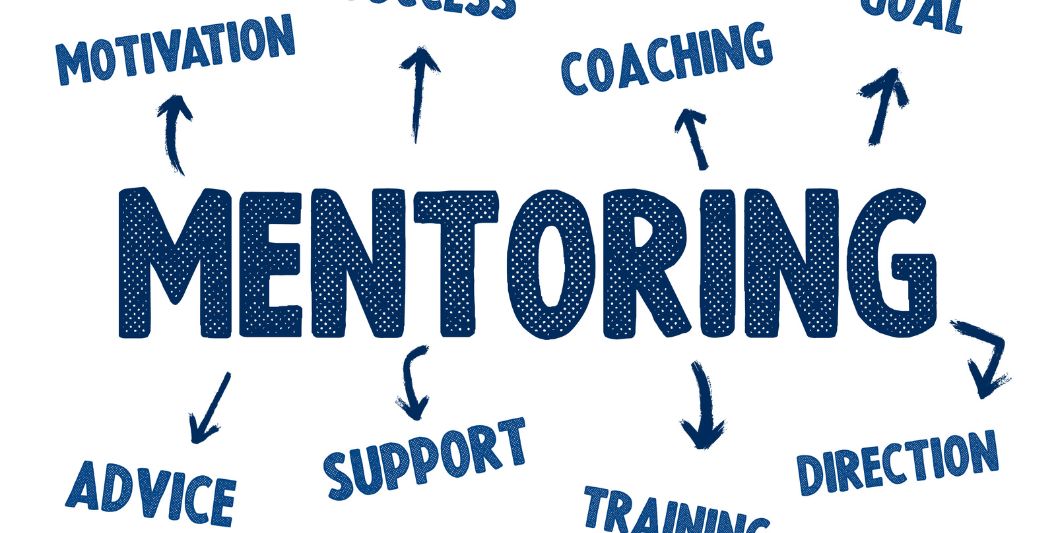In today’s world, navigating career paths and personal goals can feel overwhelming. A career mentor, a trusted advisor with experience and wisdom, can be a game-changer. This article will equip you with the tools and strategies how to find a mentor perfectly for you, someone who can offer guidance, support, and valuable insights to propel you forward.
What Is A Mentor?
A mentor is a trusted advisor, typically someone with more experience or knowledge in a particular field, who provides guidance, support, and encouragement to a less experienced person, known as a mentee. Mentors often share their expertise and wisdom to help the mentee develop their skills, navigate challenges, and achieve their goals.

Traditionally, mentors are older and more experienced than their mentees (the person being guided). However, mentorship can also be peer-to-peer, where individuals with similar experience levels exchange knowledge and support each other’s growth so how to find a mentor?
The Benefits of Finding An Effective Mentor
How to find a mentor that is fit for you is a challenging problem and consumes plenty of time and effort. However, finding a career mentor can be a transformative experience, acting as a springboard to propel you forward in your professional journey. Here’s how a mentor can empower you:
Expand and Develop Professional Connections
A career mentor acts as a bridge, connecting you to valuable contacts within their network. These introductions can open doors to new opportunities, collaborations, and even future employers.

Sharpen Your Skills with Constructive Judgment
Honest evaluation is the cornerstone of growth. A career mentor, armed with experience, can offer constructive judgment, not harsh criticism. This valuable input helps you pinpoint areas for improvement and refine your skills. By understanding your strengths and weaknesses, you can develop a targeted plan for professional development.
Gain Fresh Viewpoints and Spark Innovation
Sometimes, we get tunnel vision in our careers. A mentor can offer a refreshing new perspective, challenging your assumptions and igniting innovative ideas. This fresh look at your field can lead to a deeper understanding and open doors to possibilities you hadn’t considered.
Boost Your Credibility with a Powerful Reference
A glowing recommendation from a respected mentor can be the golden ticket to your dream job. Their endorsement adds significant weight to your resume, setting you apart from the competition and making a lasting impression on potential employers.

Navigate Challenges with Accomplished Guidance
The road to success is rarely smooth sailing. A mentor, having faced similar challenges themselves, can offer invaluable guidance. They can share their experiences, helping you anticipate roadblocks and equip you with the tools to overcome them with confidence.
Make Informed Decisions with Unfiltered Opinions
Workplace politics can cloud judgment. A mentor, however, can provide unfiltered opinions, free from these constraints. This honest feedback allows you to identify areas you might be overlooking and make well-informed decisions about your career path.
How to Find A Mentor Effectively?
Finding the right mentor can be a transformative experience and it’s important to approach the search strategically but how to find a mentor. Here’s a step-by-step guide to help you connect with the perfect person to guide your journey:
Step 1: Reflect on whether mentorship is the right fit for your needs
How can I find a mentor that is suitable for me in a career path is the first question you should ask yourself to find a perfect one, take a step back and consider your career stage and what you hope to gain from this relationship. Reflect on your strengths and how you typically handle feedback. This self-assessment will confirm if you’re ready for a mentor and guide you in finding the right fit. This is a first step in how to find a mentor effectively.

Step 2: Find out possible mentors
The second step in how to find a mentor that find a potential career mentor, start by creating a list of people in your field you admire or those at advanced stages you aspire to emulate. Reflect on what qualities you respect in them. Then, consider who you already know that embodies these attributes, focusing on those within your field. This will allow them to guide you in developing both hard and soft skills relevant to your career. It’s important to prioritize those who enjoy teaching and fostering growth, as they’ll be more invested in your development. This brainstorming exercise can help you identify a potential career mentor you already know and connect with.
Step 3: Establish contact with your admirable mentor
After identifying a potential career mentor, initiate contact to explore their availability for guidance. Don’t jump straight into a formal mentorship request – this can feel overwhelming. Instead, simply reach out to see if they’re open to connecting and discussing your area of need. You can do this in person (ideally during their break) or via email.
An email should be semi-formal, expressing your interest in the topic and inquiring about your availability for a brief chat, even virtually. Remember, while many welcome the chance to help, some may be too busy or decline. If that happens, thank them for their time and continue your search for a suitable mentor.

Step 4: Request a meeting to contact
During your meeting with a potential mentor, demonstrate respect for their time by coming prepared. Have specific questions and a clear understanding of your goals so they can tailor their advice. The conversation can be informal, but stay focused on getting guidance on your chosen topic. Even a brief 15-minute chat can be valuable if you come prepared.
Moreover, you should remember to conclude by thanking them and expressing interest in a follow-up discussion after implementing their suggestions. Schedule this meeting with enough lead time to make progress but ensure it remains timely to maintain momentum.
Step 5: Nurture your mentorship
Don’t let the initial meeting be the end of the connection! To nurture the relationship, keep your career mentor updated on your progress. Send them periodic updates highlighting how their advice has benefited you, and if possible, showcase any concrete results. Schedule regular meetings, weekly, monthly, or quarterly, depending on your goals and their availability. Finally, consider formally requesting them to be your mentor, but be mindful that some may prefer a less formal approach.
Step 6: Explain Your Goal and Interests.
At the end of this process how to find a mentor is to introduce yourself and share your elevator pitch, explaining why you’re seeking a mentor, why you believe they would be the perfect fit, and what you hope to gain from the mentorship. Also, highlight how you can add value as their mentee. Besides that, you need to share your goals and interests with your career mentor to ensure they can support you in the future. Moreover, be prepared to answer any questions they might have and suggest a plan for moving forward if they agree to mentor you. If they decline, graciously accept their decision and ask if they can refer you to someone who might be interested in mentoring.

Tips to Help You in How to Find A Mentor Successful
The tips you’ve listed are all great starting points for how to find a mentor relationship successfully, but let’s explore how we can strengthen them a bit.
Define Your Goals Beforehand
Instead of just setting goals, take time to identify what you want to achieve through mentorship. Are you looking for career guidance, industry knowledge, or someone to help you develop specific skills? Knowing your goals will help you target the right mentor.
Be Proactive About Scheduling
Don’t expect your mentor to chase you down for meetings. Take the initiative to schedule regular meetings and stick to them. This shows respect for their time and keeps the momentum going.

Express Appreciation Consistently
Gratitude goes a long way. Thank your mentor for their time, advice, and support. Small gestures like a handwritten note or a thoughtful gift can also show your appreciation.
Offer Value in Return
A mentor-mentee relationship is a two-way street. While you’ll be receiving guidance, consider how you can offer value as well. This could be sharing industry news, offering help with a project, or simply being a good listener and sounding board.
Thank you for reading at the end and we hope this article can provide the necessary information about how to find a mentor successfully. Have a good day and stay healthy!


